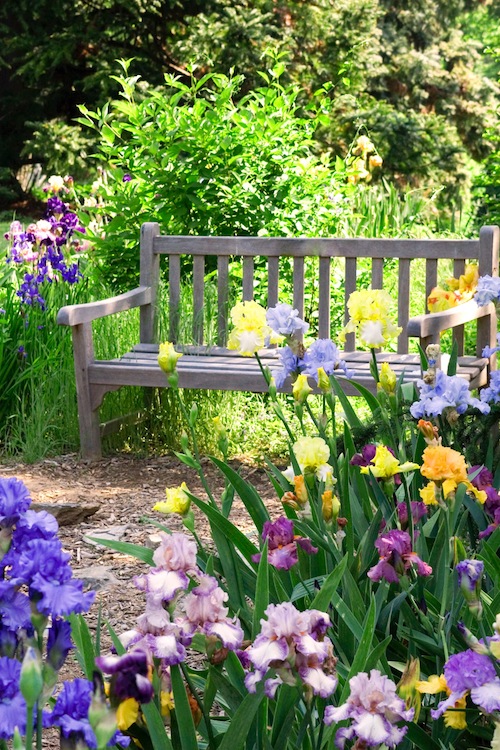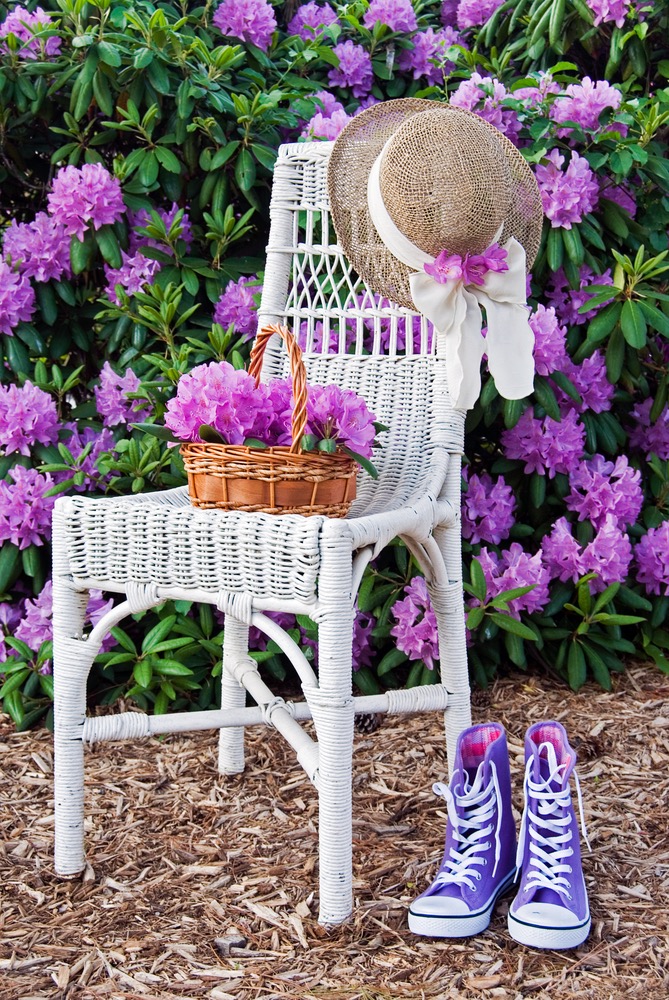I love when Springtime arrives! I’ve enjoyed watching our trees as they go from the bare branches of Winter to bursting with the lush green leaves of Spring. Our roses, azaleas, and all the other flowers just sweeten the scenery with their wonderful color and beauty. It seems appropriate to share today an article on using the wisdom of the garden to help navigate through life.
Life Lessons from the Garden
Consider the dandelion. Reviled by many as an insistent, bothersome weed, it nevertheless continues to proudly display its pert, bright yellow self in lawns and gardens everywhere, thriving in the face of adversity.
Thriving in the face of adversity.
 Where, in our own lives, do we face adversity? How do we carry ourselves through it: head down, beating ourselves up or feeling defensive and resentful? Or head up and face open, like the dandelion, sure of our intrinsic worthiness, knowing our gifts to the world, even if the world doesn’t necessarily recognize them?
Where, in our own lives, do we face adversity? How do we carry ourselves through it: head down, beating ourselves up or feeling defensive and resentful? Or head up and face open, like the dandelion, sure of our intrinsic worthiness, knowing our gifts to the world, even if the world doesn’t necessarily recognize them?
For those who know how to look and wait, the garden teems with other such life lessons. As spring awakens this year, turn your awareness to the wise teachings of your garden. If you don’t have a conventional garden, a container garden on your porch or potted plants in your home still offer valuable lessons. Here are a few:
It’s OK to be imperfect. Trying to grow the perfect rose, or the perfect cabbage, is an exhausting, never-ending quest for flawlessness. “Imperfect” roses are still beautiful and “imperfect” cabbages still burst with flavor, just like we humans. With our myriad imperfections, we still contribute our own beauty and zest to the world.
Pruning improves growth. Removing old habits that don’t serve us opens new possibilities for growth in areas that do serve us.
Pay more attention to your health than your appearance. As author William Longgood wrote, “Over fertilized plants may be beautiful but are otherwise useless, like people whose energies are devoted so completely to their appearance that there is no other development.”
Regular maintenance is important. Isn’t it soooo much harder to clear an overgrown jungle of a garden than to regularly pull encroaching weeds? Think of the clutter that can accumulate in our houses, the extra pounds that are harder to lose than to keep off in the first place, the overwhelm or illness that can result from too little self-care.
 Have faith. Plant a seed, water it, and trust that it will grow. Similarly, believe that the shifts you make in your life, the dreams you hold dear, will fully blossom if you nourish and protect them.
Have faith. Plant a seed, water it, and trust that it will grow. Similarly, believe that the shifts you make in your life, the dreams you hold dear, will fully blossom if you nourish and protect them.
Don’t be afraid to try new approaches. The garden is an incredible laboratory for experimentation. What new approaches do those old problems in your life need? Trial and error is one of life’s best teachers. Not trying is the domain of hopelessness.
Take care with predators. It doesn’t take long for predators to damage the result of your careful cultivation, in the garden and in life. What toxic relationships, substances and emotions are feeding on your energy and taking away from what you have to give to others? Eliminate them.
Transform your trash. The compost heap turns rotting plant waste into a treasure pile of rich, organic fertilizer. What negative patterns in your life can you work to transform? When we do the hard work of breaking these patterns down, the results are often rich and beneficial to our lives.
Everyone is unique and needed. Everything in nature has a function that is interdependent. As famous naturalist John Muir said, “When one tugs at a single thing in nature, he finds it attached to the rest of the world.” Rock, plant, bird, bee—even bacteria in the soil—all occupy a vital place in life. What is your purpose, your gift to the world? Who do you depend on; who depends on you?
Something important happens every day. Take the time to notice the little everyday miracles in your gardens and in your life.
Author’s content used under license, © 2008 Claire Communications











Speak Your Mind